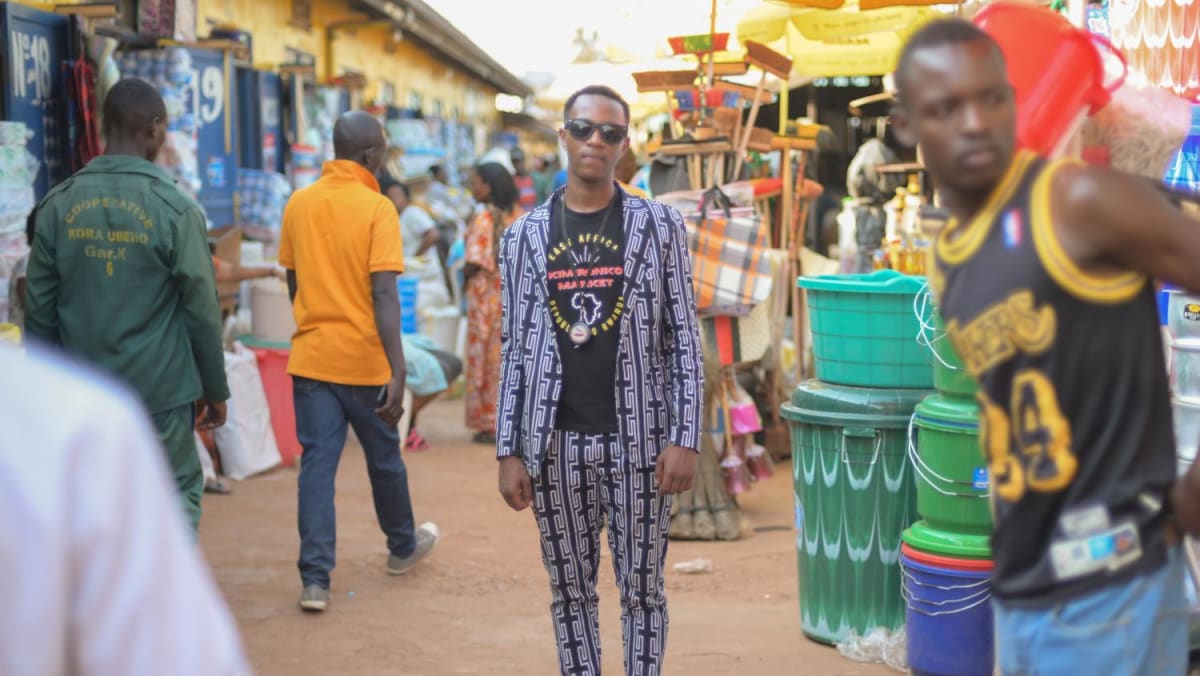With bold colours and loud prints, Rwanda's fashion industry gets on the global stage

Source: TODAY
KIGALI (Rwanda) -- At the Integrated Polytechnic Regional College (IPRC) Kigali, two unassuming one-storey buildings are equipped with modest workspaces, sewing machines and mannequins. The little complex is home to Rwanda's first generation of fashion design students.
Ms Millandra Ingabire, 25, works in the corner of one of its rooms, cutting garment patterns for an advanced module on sewing machine operations.
The second-year student has an Instagram shop called Ikanga Designs, where she sells custom-made formal wear using fabrics suited for Rwanda's climate.
Her parents were disappointed when she decided to become a designer, as the fashion industry used to be likened to tailoring clothes and was not viewed as a respectable career path.
"Rwandans believe that tailoring is the profession people go into if they want something easy to do," said Ms Patience Chitura, 47, the head of the fashion design course at the polytechnic.
But times have changed.
The fashion scene is now supported by government policies to promote home-grown products. Designers have gained global recognition and youth now see fashion as a viable career path.
Ms Ingabire said: "Once my parents started understanding what I do better, they became my biggest supporters."
The fashion design programme at IPRC Kigali had 400 applicants competing for 25 vacancies in its recent intake. Launched in 2020, the course teaches pattern making and rendering designs digitally, as well as brand marketing and business development.
Applications for the course are increasing at an "alarming rate", said Ms Chitura.
In 2017, the government implemented policies to stimulate local and overseas demand for Rwandan-made clothing.
That year, Rwanda joined other East African countries in phasing out the import of cheap second-hand clothing from the United States.
The government also introduced the Made in Rwanda policy, which stimulated the garment and textile industry by removing taxes on the imports of raw materials. The policy also succeeded in making local products more appealing.
"The Made in Rwanda policy has instilled a sense of pride for local wear and vendors," said Mr Richard Rutayisire, 31, a designer for the House of Tayo, one of Rwanda's pioneering designer brands.
Mr Rutayisire said in the past, the elite opted to shop at global luxury brands such as Louis Vuitton. Since then, there has been a shift in mindset and people now opt for local brands.
Another force driving the fashion scene forward is Collective RW, a group of 11 designer brands which organises Rwanda Fashion Week annually. The collective spotlights local designers.
Celebrities from around the world have become interested in what Rwandan designers have to offer.
American actor Kevin Hart and his wife Eniko bought clothes from one of Rwanda's established designer brands, Haute Baso, on their visit to Kigali.
On a trip to Rwanda and Senegal, American philanthropist Melinda Gates wore a flowy printed dress by designer Sonia Mugabo.
Queen Camilla -- then the Duchess of Cornwall -- bought a bag from French-Rwandan fashion designer Elodie Fromenteau's Izubaa brand.
